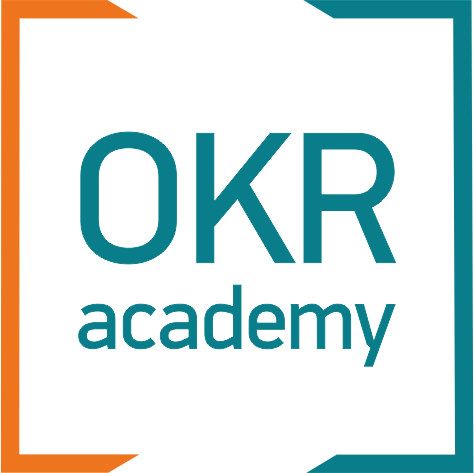OKR Methodology
3 reasons why I always do quarterly OKRs at training, not annual ones?
Although in most knowledge sources on OKRs, setting quarterly goals is considered the norm, nonetheless, often during the first training workshop, which includes setting real OKRs, I receive requests to set OKRs for a year. This request most often comes from CEOs or company owners, which is quite understandable since the higher the position, the broader strategic timeframe one tends to think in.
In most cases, I manage to convince not to do this, and here I will present three main reasons with illustrations.
In most cases, I manage to convince not to do this, and here I will present three main reasons with illustrations.
Let's start with the fact that the purpose of OKRs is to manage strategic changes, not everyday activities, business as usual. From this, two important conclusions follow:
1) Before setting OKRs, a company must have defined a strategy and strategic goals - which is most often a period of 1-2 years. Strategic goals usually describe desired parameters of both changes and current activities.
2) Unlike BAU metrics, which remain unchanged over several years, changing only the numbers, in OKRs we do not know the entire path in advance and often proceed by way of experiments. Essentially, each OKR is a hypothesis that we test in action - "What is important to focus on in the chosen period to implement strategic changes?".
If we agree on this fundamental view of the purpose of OKRs, let's then look at the situation from the point of view of common sense (after all, in OKRs everything is about common sense and psychology).
1) Before setting OKRs, a company must have defined a strategy and strategic goals - which is most often a period of 1-2 years. Strategic goals usually describe desired parameters of both changes and current activities.
2) Unlike BAU metrics, which remain unchanged over several years, changing only the numbers, in OKRs we do not know the entire path in advance and often proceed by way of experiments. Essentially, each OKR is a hypothesis that we test in action - "What is important to focus on in the chosen period to implement strategic changes?".
If we agree on this fundamental view of the purpose of OKRs, let's then look at the situation from the point of view of common sense (after all, in OKRs everything is about common sense and psychology).

Reason 1. Defocus.
A lot can be accomplished in a year, so it's no surprise that a company might have many vectors of desired changes. In my recent client case, there were 6 directions of strategic changes. And there can be more.
What happens if all this goes into annual OKRs and this is the only guideline for the teams? Firstly, an enormous workload - when you don't know what to grab onto, too many priorities mean there are no priorities at all. Resources are overloaded, teams can burn out, and the result is not noticeable - leading to disappointment in the OKR system itself (although the system prescribes otherwise).
Also, when the result is expected in a year, it inadvertently provokes procrastination, and the team first takes on urgent, even if not so strategically important tasks - because there is still time.
How to fix it?
Yes, annual goals can be formulated in the format of OKRs.
But after that, a second planning session should be held and OKRs set for a shorter period - from 1 to 4 months. And determine which 1-3 directions should become the true priority for this period.
When the period ends, analyze the results and make a balanced decision - which direction to continue in the format of OKRs for the next period, which can already be transferred to Run activity, because the necessary level has been reached and clarity obtained, and which new OKRs to take.
A lot can be accomplished in a year, so it's no surprise that a company might have many vectors of desired changes. In my recent client case, there were 6 directions of strategic changes. And there can be more.
What happens if all this goes into annual OKRs and this is the only guideline for the teams? Firstly, an enormous workload - when you don't know what to grab onto, too many priorities mean there are no priorities at all. Resources are overloaded, teams can burn out, and the result is not noticeable - leading to disappointment in the OKR system itself (although the system prescribes otherwise).
Also, when the result is expected in a year, it inadvertently provokes procrastination, and the team first takes on urgent, even if not so strategically important tasks - because there is still time.
How to fix it?
Yes, annual goals can be formulated in the format of OKRs.
But after that, a second planning session should be held and OKRs set for a shorter period - from 1 to 4 months. And determine which 1-3 directions should become the true priority for this period.
When the period ends, analyze the results and make a balanced decision - which direction to continue in the format of OKRs for the next period, which can already be transferred to Run activity, because the necessary level has been reached and clarity obtained, and which new OKRs to take.

Reason 2. Desynchronization.
There's a practice when company OKRs are set for a year, and team OKRs - for a quarter. What happens in this case? With OKRs, you define the priorities of change activities, facilitating focused and coordinated movement of teams in strategy implementation. If you set company OKRs for a year, different teams can choose different pieces of this pie for themselves for the quarter, and you will spend a lot of effort on their synchronization, or you will witness a synchronization conflict and excessive resource expenditure.
If they don't believe you - suggest an experiment.
Let them take an A4 sheet of paper and try to put a dot exactly in the center of the sheet. Let them check the result by folding the sheet into 4 parts.
Now make the sheet as small as possible - for example, one eighth of the original sheet. The task is the same - to put a dot exactly in the center of the sheet.
What changed in the result? I assume that the accuracy has significantly increased. What influenced this? A narrower frame. Just as precisely with time - the smaller the time frame we take, the more precisely we can align.
There's a practice when company OKRs are set for a year, and team OKRs - for a quarter. What happens in this case? With OKRs, you define the priorities of change activities, facilitating focused and coordinated movement of teams in strategy implementation. If you set company OKRs for a year, different teams can choose different pieces of this pie for themselves for the quarter, and you will spend a lot of effort on their synchronization, or you will witness a synchronization conflict and excessive resource expenditure.
If they don't believe you - suggest an experiment.
Let them take an A4 sheet of paper and try to put a dot exactly in the center of the sheet. Let them check the result by folding the sheet into 4 parts.
Now make the sheet as small as possible - for example, one eighth of the original sheet. The task is the same - to put a dot exactly in the center of the sheet.
What changed in the result? I assume that the accuracy has significantly increased. What influenced this? A narrower frame. Just as precisely with time - the smaller the time frame we take, the more precisely we can align.
Reason 3. The cost of error.
As I noted at the beginning, OKR is a hypothesis that we test in action - "What is important to focus on in the chosen period to implement strategic changes?". The hypothesis may turn out to be erroneous if we are in a situation of high uncertainty. In this case, the shorter the testing period we take, the more we minimize the cost of error.
As I noted at the beginning, OKR is a hypothesis that we test in action - "What is important to focus on in the chosen period to implement strategic changes?". The hypothesis may turn out to be erroneous if we are in a situation of high uncertainty. In this case, the shorter the testing period we take, the more we minimize the cost of error.
In general, don't be afraid to set OKRs for a short term. This does not mean that you switch to short-term planning and lose sight of the big picture. It means that you emerge more frequently and check in with that big picture of desired strategic changes and consciously take the next step.
